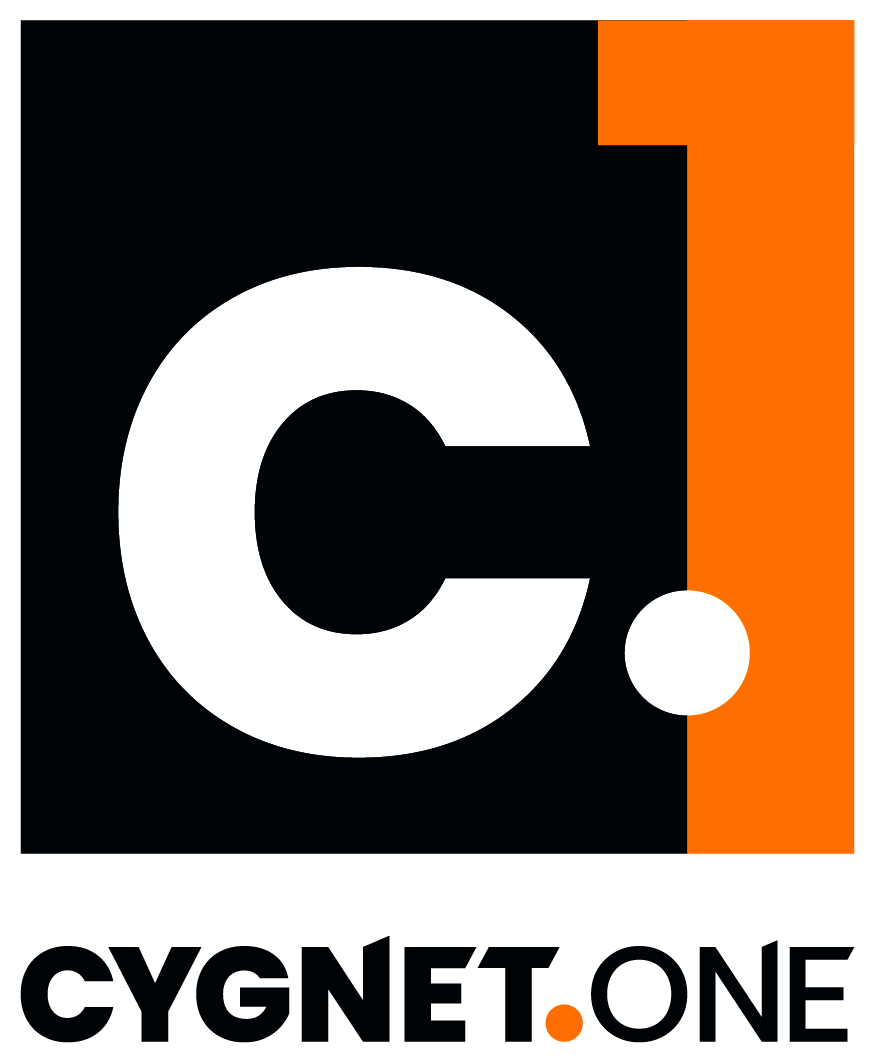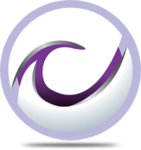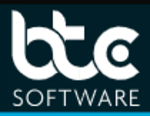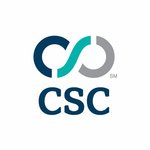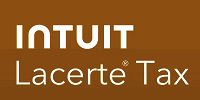Indeed, the majority of business tax software is cloud-based and accessible from a variety of platforms and devices, such as tablets, smartphones, laptops, and desktop PCs. This makes it simple and handy for companies whose employees use multiple devices and work from different places Furthermore, a wide variety of users can utilize business tax software applications because many of them are compatible with both Mac and PC operating systems.
List of 20 Best Corporate Tax Software
A e-Invoicing solution for KSA, designed by Cygnet Digital. Effortlessly generate e-invoices and stay compliant with government regulations, while streamlining your VAT return preparation and simplifying the indirect tax compliance process for your b...Read More KSA e-Invoicing
myTaxExpress is a tax solution designed to streamline your tax filing experience. Seamlessly integrated with docsign.ca, our software provides secure e-signature and document delivery services. Stay on top of your tax preparations with automatic noti...Read More myTaxExpress
Thomson Reuters ONESOURCE solution for simplifying corporate income tax processes. Say goodbye to tedious policy management and say hello to effortless compliance with external regulatory requirements. Our platform boasts a high level of transparency...Read More Thomson Reuters ONESOURCE
TaxTron is a trusted tax software that simplifies the process of personal and corporate tax preparation. Our user-friendly tools are backed by exceptional support, allowing you to confidently navigate your tax requirements. Say goodbye to the stress...Read More TaxTron
Capium is a cloud-based accounting software revolutionizing the way businesses handle finances. With its advanced solutions, Capium streamlines processes and enhances productivity. Through user-friendly technology, Capium empowers businesses to maint...Read More Capium
BTCSoftware Solution Suite solution for simplifying tax and account management for professionals. This comprehensive software offers a user-friendly interface and seamless integrations, as well as a range of powerful features to ensure maximum compli...Read More BTCSoftware Solution Suite
UFileT2 is a tax solution for Canadian businesses. This user-friendly software offers comprehensive support and intuitive features, making corporate tax filing a seamless and stress-free process. Experience guaranteed accuracy and efficiency, and sav...Read More UFileT2
Caseware Corporation Tax is software that streamlines your tax processes and facilitates quick submissions to HMRC. It simplifies compliance, promotes precision, and increases productivity for your company. This all-in-one solution ensures seamless a...Read More Caseware Corporation Tax
A innovative software, Corporate Tax Manager. Powered by ROS online technology, it streamlines CT1 calculations and efficiently handles all corporate tax requirements. With a seamless integration of workflow module, it ensures accuracy and compliance...Read More Corporate Tax Manager
CSC Corptax is a corporate tax software designed to optimize processes, increase productivity, and promote transparency. With a strong track record of serving domestic and international clients, including Fortune 500 companies, this software offers a...Read More CSC Corptax
Drake Tax is a tax preparation software for professionals. This comprehensive software covers everything from individual to business tax returns, federal and state. With its user-friendly interface and efficient procedures, Drake Tax simplifies and a...Read More Drake Tax
TurboTax is a highly acclaimed tax software that is renowned for its user-friendly interface and efficiency. Its Free Edition enables you to prepare and file your taxes electronically with the IRS at no cost. TurboTax streamlines the process of filin...Read More TurboTax
Lacerte Tax, created by Intuit, is tax preparation software built for tax professionals, accountants, and tax firms. It provides a wide range of tools, including e-filing, comprehensive support for various tax forms and schedules, and accurate calcul...Read More Lacerte Tax
Koinly is a tax calculator for Bitcoin and cryptocurrency. Simplify the process of generating tax reports with seamless integration of accounts and wallets through API or CSV files. With Koinly, calculating capital gains becomes effortless and suppor...Read More Koinly
Vertex O Series, the premier corporate tax software that seamlessly integrates with your ERP or financial system. This advanced solution provides flexible options for enhancing precision, standardizing tax procedures, and managing intricate taxabilit...Read More Vertex O Series
Taxprep is the premier tax preparation software in Canada, trusted by top accounting firms and numerous small to medium-sized businesses. Its advanced capabilities and supplementary services help businesses optimize profits and streamline processes,...Read More Taxprep
UltraTax CS is a software solution for industry leaders in finance, law, taxes, accounting, science, intellectual property, and media. With its cutting-edge features, UltraTax CS is the go-to tool for professionals looking to deliver top-notch result...Read More UltraTax CS
TaxSlayer Books is a solution for your accounting requirements! Our intuitive software is completely free and includes integrated financial services. Seamlessly connect with your bank accounts and import transactions for quick and accurate bookkeepin...Read More TaxSlayer Books
TaxJar is a reliable tax solution that has gained the trust of more than 15,000 businesses. It simplifies sales tax calculation and seamlessly integrates with popular platforms like Amazon, Shopify, and PayPal. This streamlined process makes tax comp...Read More TaxJar
GreatSoft CRM solution for company secretaries to simplify data management and sharing. With its customizable services and seamless integration across multiple platforms, this software streamlines data processes and eliminates all hassles. Experience...Read More GreatSoft CRM
Learn More About Corporate Tax Software
- What is Corporate Tax Software?
- What Are the Recent Trends in Corporate Tax Software?
- Benefits of Using Corporate Tax Software
- Important Factors To Consider While Purchasing Corporate Tax Software?
- What Are The Key Features To Look For In Corporate Tax Software?
- Why Do Businesses Need Corporate Tax Software?
- How Much Time Is Required To Implement Corporate Tax Software?
- What Is the Level of Customization Available in Corporate Tax Software?
- Which Industries Can Benefit The Most From Corporate Tax Software?
- Conclusion
What is Corporate Tax Software?
A specialist instrument called corporate tax software was created to assist companies in precisely and effectively managing their tax liabilities. Businesses can save time and money by using this kind of software, which automates and simplifies the corporate tax calculation, filing, and payment process. Accurately calculating taxes in accordance with current tax laws and regulations is one of the main functions of corporate tax software.
Because tax regulations are always changing and maintaining compliance can be difficult, this is especially crucial for businesses. Businesses can make sure their tax computations are precise and compliant with the most recent rules by using tax software. Furthermore, tax planning and forecasting tools are frequently included in corporate tax software, enabling companies to base strategic choices on their tax responsibilities.
Businesses can increase their earnings and reduce their tax obligations by doing this. The flexibility of corporate tax software to interface with other financial systems, such accounting software, is another important advantage. This lowers the possibility of mistakes and inconsistencies by enabling the smooth and correct flow of financial data.
Additionally, corporate tax software provides a range of reporting features, including the ability to generate tax forms and schedules, which expedites and improves the efficiency of the filing process.Some software even allows for e-filing, which does away with the need for paper forms and the associated expenses of shipping. Considerations like customer service, dependability, and ease of use are crucial when selecting corporate tax software. Selecting the software that best suits your company's needs is essential because some may target particular industries or sizes of businesses.
What Are the Recent Trends in Corporate Tax Software?
As technology continues to grow at a quick pace, corporate tax software has seen considerable modifications and advancements in recent years. The increased complexity of tax rules and regulations, along with the increasing need for precision and efficiency in corporate tax management, have been the main drivers of these changes. We'll go over the latest developments in corporate tax software.
1. Solutions Based On The Cloud: The shift to cloud-based solutions is one of the biggest developments in business tax software. This indicates that rather than being installed on a local computer, the software is hosted on distant servers and accessed online. Due to its many advantages, such as accessibility, scalability, and cost savings, this approach has become more popular. Additionally, cloud-based solutions facilitate real-time data sharing and collaboration, which makes it simpler for teams to collaborate on tax files.
2. Artificial Intelligence And Automation: Corporate tax software is not an exception to the way that automation and artificial intelligence (AI) have transformed the tax sector. These technologies lower the possibility of human error by rapidly and precisely analyzing large amounts of data. Additionally, they allow the program to discover possible deductions and recommend tax solutions, which results in more successful and economical tax files.
3. Accounting Software: Integration Integration with accounting software is another recent development in business tax software. This facilitates smooth data flow between the two systems, increasing efficiency and lowering the possibility of errors throughout the tax filing process. Furthermore, tax professionals can offer more precise and individualized tax advice by better understanding a company's financial facts through interaction with accounting software.
4. Applications For Mobile Devices: The need for mobile applications for tax software has grown as more companies adopt mobile technologies and remote work. From their smartphones or tablets, users can use these apps to access their tax data, finish files, and monitor the progress of their refunds. Additionally, they provide the ease of working on tax returns from any location at any time.
5. Support For Compliance And Audits: Corporate tax software now must provide compliance and audit support, particularly in light of regulatory agencies' heightened monitoring of taxes. These days, a lot of software suppliers provide solutions to make audit preparation easier as well as features that guarantee adherence to tax rules and regulations.
Benefits of Using Corporate Tax Software
The process of handling taxes for a corporation can be difficult and time-consuming. But thanks to technological developments, corporation tax software has been created to make this work easier and more efficient. We will go over the many advantages of utilizing corporate tax software for your company in this buyer's guide.
1. Accurate And Efficient Tax Calculations: The capacity of business tax software to accurately compute taxes is one of its main advantages. Your tax computations will be accurate and compliant with the law because the software is updated with the most recent tax laws and regulations. This removes the possibility of human error, which may be expensive for companies.
2. Time And Cost Savings: Manually calculating taxes can be a laborious and expensive procedure. This procedure is automated by corporate tax software, which frees up several hours that you may use for other important duties. Software is a cost-effective alternative for companies of all sizes because it can also lower the cost of outsourcing tax preparation services or hiring a tax consultant.
3. Centralized Data Management: With corporate tax software, all of your tax-related information can be managed and stored in one place. Records of earnings, outlays, deductions, and other financial data are included in this. This guarantees that your information is secure and well-organized in addition to making it simpler to access and examine your tax data.
4. Real-Time Updates: It might be difficult to stay current and compliance with tax laws and regulations because they are always changing. To ensure that your tax calculations are always correct and compliant with the most recent regulations, corporate tax software suppliers update their programs on a regular basis to incorporate these changes. You avoid the trouble and possible consequences of non-compliance by doing this.
5. Customization And Integration: You can adapt corporate tax software to your company's unique requirements. You can select the features and capabilities that are pertinent to the tax requirements of your company. The program can also be integrated with other financial software and systems, which facilitates data transfers and optimizes your total financial procedures.
Important Factors To Consider While Purchasing Corporate Tax Software?
Consideration should be given to a number of important considerations when buying business tax software. Selecting software that not only fits your tax management requirements but also fits into your budget and long-term objectives is crucial for business owners. The following are crucial elements to take into account while investing in business tax software:
1. Features And Functionality: The software's features and functionality should be taken into account first. Seek out software that can manage payroll taxes, sales taxes, income taxes, and other tax kinds. Additionally, it ought to have functions like accounting software connection and automatic tax computations. Additionally, ensure that your team can quickly navigate the software and that it is user-friendly.
2. Scalability And Customization: Since every company has different tax obligations, it's critical to select software that can be tailored to meet your demands. Additionally, the software should be scalable to handle future expansions of your company. In the long term, this will save you time and money because you won't need to upgrade to new software as your company grows.
3. Tax Law Compliance: Since tax regulations are always changing, it's critical to maintain compliance in order to prevent penalties and fines. As a result, pick software that remains current with the most recent tax laws and rules. Additionally, it should have tools and audit trails built in to assist you in filing proper tax forms.
4. Integration capabilities: Any pertinent systems, such as your current accounting software, should be able to interact with your tax software. This will reduce the possibility of mistakes or inconsistencies while also saving you time and effort. Choosing software that provides smooth connection with well-known accounting and ERP systems is advised.
5. Customer Service: It's normal to have queries or require help when working with complicated tax regulations and software. Choose a software provider that provides dependable customer service by phone, email, or live chat. Before making a purchase, make sure to read reviews and assess the vendor's helpfulness and response time.
6. Data Security: The financial information of your company is sensitive and needs to be protected. Make sure the tax software you use has sophisticated security features like firewalls, data encryption, and frequent backups. Knowing that your information is protected from any potential cyber threats will ease your mind.
What Are The Key Features To Look For In Corporate Tax Software?
There are a number of important factors to take into account when choosing the best corporate tax software for your company. These elements are necessary to make sure the software satisfies the unique requirements of your business and aids in effective tax management. Let's examine the essential characteristics of business tax software in more detail.
1. Usability And Accessibility: When choosing business tax software, these two aspects are among the most important ones to take into account. The program ought to have an easy-to-use interface that is simple to utilize. Look for features that will help you finish your tax files quickly and accurately, like drop-down menus, user prompts, and help sections. The program should also work on a variety of platforms, such as smartphones, tablets, laptops, and desktop computers.
2. Accounting Software Integration: The smooth integration of corporate tax software with your current accounting software is another crucial characteristic to search for. You can save time and effort by reducing the likelihood of errors and doing away with manual data entry thanks to this integration. Additionally, it guarantees that your financial information is constant across all platforms, giving you precise tax computations.
3. Tax Compliance: Since tax rules and regulations are always evolving, it's critical to make sure your business tax software is current with the most recent standards for compliance. To make sure you are constantly in compliance with the most recent tax rules, look for software that updates tax rates and forms automatically. You can avoid fines and penalties for non-compliance by using this function.
4. Import And Export Capabilities: These are yet another helpful aspect to take into account. By importing data into the tax software from other financial programs, such your accounting program, you can increase the accuracy and efficiency of tax preparation. In a similar vein, data exporting to other systems ought to be possible for smooth departmental coordination.
5. Automated Computations And Error Checking: To guarantee precision in all tax-related computations, corporate tax software ought to incorporate automated computations. This feature reduces the possibility of mistakes in addition to saving time. To find and point out any possible mistakes in your tax returns, search for software with integrated error checking features.
6. Customization Options: Since every firm has different tax obligations, it's critical to select software that can be tailored to meet your needs. This function enables you to customize the program to your company's requirements and guarantee that it satisfies all of your tax-related objectives.
Why Do Businesses Need Corporate Tax Software?
Effective tax management is essential to maintaining an advantage over rivals and guaranteeing long-term success in the fast-paced, fiercely competitive corporate sector. Accurately calculating and reporting corporate taxes is one of the most important parts of tax administration for firms. Corporate tax software is useful in this situation. Corporate tax software, created especially for companies, provides a complete solution for effective and efficient tax management. It is a useful tool for expediting the tax procedure and reducing errors because of its sophisticated features and automation possibilities.
Businesses use corporate tax software for the following main reasons:
1. Adherence To Tax Legislation And Rules: The purpose of corporate tax software is to guarantee that companies adhere to the constantly evolving tax rules and regulations. Businesses can avoid penalties and fines for late or inaccurate tax files thanks to its automatic computations and current tax rules.
2. Saving Money And Time: Corporate tax preparation and filing by hand can be a laborious and time consuming procedure. This procedure is streamlined by corporate tax software, which also helps businesses save time and money that may be better spent elsewhere. It also reduces costs by doing away with the need to hire pricey tax consultants.
3. Reliable And Accurate: computations To compute taxes effectively, corporate tax software uses sophisticated algorithms and automation. This guarantees more accurate and dependable outcomes while lowering the possibility of human error. Businesses that deal with complicated tax situations can particularly benefit from this.
4. Makes Keeping: Records easier Businesses may save and arrange all of their tax-related data in one place with the help of corporate tax software. This facilitates the retrieval of documents, the monitoring of spending, and the production of reports for upcoming tax returns.
5. Provides Forecasting And Tax Planning Services: Corporate tax software assists companies in making strategic tax planning decisions through its forecasting and planning capabilities. It gives businesses information about possible tax obligations so they may make appropriate plans and budgets.
How Much Time Is Required To Implement Corporate Tax Software?
The amount of time needed to deploy corporate tax software might vary based on a number of factors. The size of your company, the complexity of your business structure, and the degree of modification required for the software to meet your unique tax procedures are a few examples of these variables. The implementation procedure can take a few weeks to several months on average.
The readiness and collaboration of your team in implementing the new software will also affect this timeline. Understanding your present tax procedures and how the software will work with them is essential for a seamless and effective deployment process. Before starting the implementation process, you might need to thoroughly analyze your tax procedures and make any necessary revisions. To guarantee a smooth transition, it is also crucial to include team members and important stakeholders in the implementation process.
Training sessions, tailored tutorials, and continuing assistance from the software supplier may all fall under this category. Ultimately, the complexity and preparedness of your company will determine how long it takes to adopt corporate tax software. To guarantee a smooth integration and optimize the software's advantages, this process requires careful planning and adequate time and resources.
What Is the Level of Customization Available in Corporate Tax Software?
Customization is a crucial component of corporate tax software that aids in effective tax management for organizations. This makes it possible for companies to customize the program to meet their unique demands, offering a more individualized method of tax preparation. Programs differ in how much customisation is possible with corporate tax software.
While some software may give more extensive customization choices for every individual tax return, others may only offer basic customization possibilities, such creating distinct tax profiles for various corporate organizations. Users can alter their charts of accounts to fit their particular industry and business structure with the majority of corporate tax software. This guarantees that, given the particular financial structure of the business, the program can compute taxes with accuracy.
Additionally, companies can alter their tax schedules and forms to meet their unique filing needs. In order to make sure that their returns are correct and in compliance with tax regulations, companies might add or remove specific fields, lines, or schedules. Businesses may have different tax requirements as they expand and change. Because of this, the top corporate tax software is scalable, enabling companies to readily modify and adapt their tax procedures as their requirements evolve.
Before making a purchase, purchasers should carefully evaluate the degree of customisation provided by various business tax software systems. This will guarantee that the program can accommodate their company's particular tax requirements, resulting in the most accurate and efficient tax preparation possible.
Which Industries Can Benefit The Most From Corporate Tax Software?
A vital tool for companies of all sizes and in a variety of sectors is corporate tax software. Nonetheless, some sectors stand to gain more from the use of this kind of software than others. We will examine which industries stand to gain the most from the use of corporate tax software in this buyer's guide.
1. Financial Services Business: Corporate tax compliance is a difficult endeavor in the financial services business because of the intricate financial transactions and regulations it works with. Financial service organizations may effortlessly handle their tax filings, keep precise records, and guarantee adherence to tax rules and regulations with the aid of corporate tax software.
2. Manufacturing Industry: Manufacturing businesses can have complicated supply lines and many locations, which can result in complicated tax filings and calculations. Manufacturing companies can better manage their taxes with the help of corporate tax software's features including inventory management and automatic sales tax computations.
3. Healthcare Industry: The healthcare sector is subject to certain tax rules and is heavily regulated. Accurately tracking and managing tax obligations, payments, and deductions is made easier for healthcare firms by corporate tax software. Additionally, it provides capabilities for handling taxes related to healthcare, including Medicare taxes and healthcare reform taxes.
4. Retail Industry: Because retail establishments handle a large number of sales transactions, manually calculating and filing taxes is a laborious and error-prone procedure. By automating tax computations and delivering real-time sales tax rates, corporate tax software simplifies this procedure and lowers the possibility of errors while guaranteeing compliance.
5. Technology Industry: Since technology companies frequently operate globally and have intricate corporate structures, tax compliance can be a difficult undertaking. By automatically monitoring and categorizing spending, guaranteeing adherence to tax regulations, and producing precise data for tax submissions, corporate tax software streamlines this procedure.
Conclusion
It is evident from a thorough analysis of all the features, costs, and user feedback that purchasing top-notch corporate tax software is necessary for a seamless and effective tax preparation procedure. These software applications provide a multitude of advantages that can significantly improve the financial administration of any company, from simplifying computations to guaranteeing regulatory compliance.
Whether you are a small business, medium-sized firm, or major corporate, it is critical that the software you choose meets your company's unique demands. Additionally, take into account the number of users, the intricacy of your financial activities, and the software's ability to integrate with other accounting programs. When comparing prices, bear in mind that some business tax software may have a greater initial cost, but that the potential for error reduction and long-term savings may make it a reasonable investment.
Additionally, selecting the best software for your company requires that you take the time to investigate and comprehend the user interface and functions that are offered. Seek out interfaces that are easy to use, possibilities for customization, and the capacity to produce thorough reports. Finally, to guarantee a flawless experience and prompt resolution of any potential problems, it is advised to choose software that provides dependable customer care, whether it be in the form of tutorials, live chat help, or phone assistance.
Finally, for companies of all sizes, corporate tax software may greatly enhance the tax preparation process, reduce errors, and simplify financial management. You can choose the best corporate tax software for your business with confidence if you carefully consider your demands and compare the features and costs of several software packages.
Corporate Tax Software FAQ's
Can Corporate Tax Software Be Accessed Across Multiple Devices And Platforms?
Is Corporate Tax Software Future-Proof And Adaptable To Emerging Technologies Like Ai, Blockchain or Iot?
In order to improve business efficiency and streamline tax procedures, corporate tax software is always changing and adjusting to new technology. To improve data analysis, automate tax computations, and guarantee compliance with evolving rules, numerous suppliers are integrating AI, blockchain, and IoT capabilities into their software. Corporate tax software is still useful and future-proof for companies of all sizes since it can be updated and integrated with new technology.
Is There A Free Trial Offered To Assess Corporate Tax Software Before Committing?
Yes, free trials are available from a number of corporate tax software vendors so that companies can evaluate the program before committing. This enables companies to test the software's features, user interface, and general functionality to see if it suits their unique requirements. Free trials, which usually last between seven and thirty days, give companies a great chance to decide wisely before making a purchase.
Does Corporate Tax Software Offer Data Security Features And Meet Regulatory Compliance Standards?
Yes, most business tax software has data security safeguards and conforms with regulatory compliance criteria. Examples include limiting user access, encrypting critical data, and performing regular data backups. Many software companies also regularly modify their systems to ensure compliance with changing regulations. Choosing a reliable software provider and performing due diligence are essential to ensuring that your company's financial information is secure.
Can Corporate Tax Software Integrate Seamlessly With Existing Tools And Platforms?
Yes, most corporate tax software options are designed to integrate seamlessly with existing tools and platforms. This includes accounting software, payroll systems, and even online banking platforms. By integrating with these tools, corporate tax software can streamline data entry and automate processes, making tax preparation more efficient and accurate.
It also helps to avoid errors and potential discrepancies between different systems. Additionally, many corporate tax software options offer customizable integration solutions to suit the specific needs of each business.

